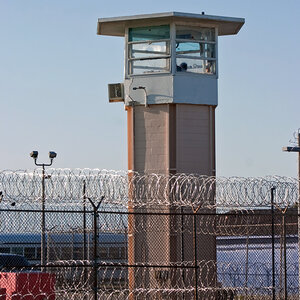Louisiana’s prison population has doubled in 30 years, study finds

Louisiana’s prison system has the highest per-capita incarceration rate in the United States—589 per 100,000 residents in 2020—and nearly double the percentage of people serving life sentences compared to neighboring states, a study from Loyola University New Orleans, commissioned by the D.C.-based Public Welfare Foundation (PWF), finds.
The two-part report, Louisiana Justice: Pre-Trial, Incarceration, and Reentry (72 pages, PDF), and Opportunities for Philanthropy within Louisiana’s Justice System (28 pages, PDF), highlights the state’s unique position in American criminal justice, detailing how race and the lack of economic power negatively define the ways defendants navigate the state’s criminal justice system, while offering insights for improving philanthropic engagement with affected communities and state institutions.
According to the study, Louisiana’s prison population has more than doubled in the last 30 years. The resulting disproportionately high incarceration rate in the state is a function of several variables, including excessively long sentences, limited releases through parole, and multi-billing practices in several parishes that substantially penalize repeat offenders. In line with national averages, incarcerated Black people in Louisiana outnumber incarcerated whites by a ratio of four to one. Prisoners serving time for crimes they committed before their 25th birthday account for more than one third of prisoners, with 5.6 percent incarcerated for crimes they committed under the age of 18. Louisiana is the only state in the U.S. that extensively uses local jails (instead of state prisons) to house people convicted of state crimes, and primarily funds its public defense system through the imposition of fines, fees, traffic tickets, and revenue from fees levied for pleading guilty before trial.
Part two of the report details opportunities for addressing the long-term complexity of the state’s legal and carceral systems, including bail reform and youth engagement, focusing on the need for broad commitments to invest in strategic communications statewide; extend funding to underfunded communities beyond New Orleans and Baton Rouge, particularly in parishes that overly prosecute youth offenders; engage in collaborative capacity building for existing organizations and networks; ensure that funding is long-term; and engage with formerly incarcerated citizens to encourage their leadership beyond the criminal justice space in areas such as economic development, health, and environmental justice.
“The best ideas bubble up from communities,” said PWF president Candice C. Jones. “We hope that this report…will serve as the needed grounding to advance a new transformative vision of justice in Louisiana—a justice system that is actually just.”
(Photo credit: Getty Images/Allkindza)




